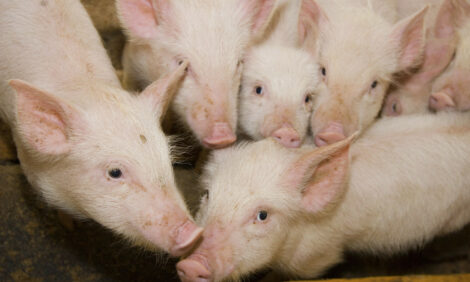



Japan wants more info before easing U.S. mad cow ban
JAPAN - Japan's Agriculture Ministry, considering conditions to resume U.S. beef imports, said on Friday it needs more information on how to tell the age of American cattle, as a U.S. explanation was insufficient.
![]() U.S. officials told a Japanese delegation during visits to beef processing plants in Colorado on Tuesday that they could estimate age by checking the maturity of meat and bones.
U.S. officials told a Japanese delegation during visits to beef processing plants in Colorado on Tuesday that they could estimate age by checking the maturity of meat and bones.
Japan is considering resuming imports of beef from U.S. cattle aged 20 months or younger without requiring them to go through tests to detect mad cow disease.
Japan, the top foreign buyer of American beef, suspended imports worth some $1.4 billion a year after the United States discovered its first case of mad cow disease last December.
"We had the impression that their explanation was insufficient," said Hirofumi Kugita, the head of the ministry's international animal health affairs office.
Kugita, who returned to Tokyo late on Thursday from a two-day visit to Colorado, said the maturity of meat and bones could vary between cattle, and there was no information from the U.S. side on how accurate such age estimates were.
Japan sent the delegation to find out about American mad cow safeguards and to explain a report on the brain-wasting disease compiled last month by Japan's Food Safety Commission.
In the report, the commission acknowledged that the youngest case of BSE found in Japan was in an animal aged 21 months, and that it is hard to detect the disease in younger animals using the test methods now available.
Based on the report, the Japanese government is considering excluding animals aged 20 months or younger from its policy of blanket-testing all cattle for mad cow disease, formally called bovine spongiform encephalopathy (BSE).
MAD COW TEST
Testing of all cattle for mad cow disease has been a stumbling block in negotiations between Tokyo and Washington on easing the ban.
Tokyo asked the United States to adopt the same test policy, but Washington rejected it as unnecessary and costly.
Agriculture Minister Yoshinobu Shimamura said on Friday the ministry would discuss whether to change the policy of blanket BSE testing with ruling party politicians early next week.
It would probably take quite a long time before a new test policy could be implemented, Shimamura said, adding that after gaining approval from the Food Safety Commission the government must then seek the public's opinions on the issue.
Japan began blanket BSE testing in October 2001, a month after the discovery of its first BSE case, in order to ease consumer concerns about beef safety.
Several local governments have said they will keep doing BSE tests on all cattle born in their regions, even if the central government decides on an end to blanket testing, in an attempt to reassure consumers of the safety of their beef.
Japanese media report on Thursday said the government planned to keep providing subsidies to local governments to help them pay for blanket BSE testing.
Asked about the report, Shimamura said the Health Ministry, which is responsible for such subsidies, seemed to be considering the matter "positively".
Japan provides a total of 3 billion yen ($26.99 million) a year to local governments to buy test kits for BSE. ($1=111.13 Yen) (Additional reporting by Miho Yoshikawa)
Source: Reuters - 8th October 2004








